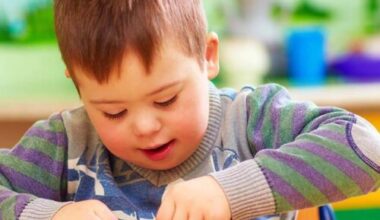Explore the Top 7 Mental Health Summer Camps for Raising Resilient Kids!
When I was little, I anticipated summertime because it meant outdoors, lots of sun, and, most especially, summer camp. Now, summer camp meant being away from the adults (School teachers and Parents) and a lot of physically fun activities. Looking back, I realize the positive impact these camping trips had on me as an individual, but it just dawned on me the intentionality that goes into planning summer camps for kids.
Those activities, which seemed so subtle, taught me the basic necessities of life, from teamwork to proper emotional regulation. Let’s not start with its benefits on mental health and general well-being. So, to save you the stress of scouring the internet, in this article, I will go over summer camps that are not only fun but concentrate on activities that prioritize the mental health of their campers.
Key Takeaways
- Mental health summer camps are specialized programs that promote emotional well-being, build resilience, and develop healthy coping skills in a fun and supportive environment.
- Some benefits that aid kids’ mental, physical, and emotional health are the development of mental health, play, and exercise, fostering a connection with nature, building self-esteem, resilience & independence, and development of communication and social skills.
What are Mental Health Summer Camps?

Mental health summer camps are specialized programs that promote emotional well-being, build resilience, and develop healthy coping skills in a fun and supportive environment. They indulge children in different activities like art and creative therapy, group discussions, outdoor adventures, team-building games, and writing exercises. These activities help the kids develop self-esteem and social skills, build confidence, and train their emotional intelligence.
Top Seven Mental Health Summer Camps

I have gathered a list of summer camps with programs in different regions that will meet your child’s mental health requirements this summer.
1. Teenlife
Teenlife is a summer guide that caters to kids from grades 7-12. Located in Boston, they host summer guides in over 10 other regions like Dallas, Chicago, Denver, Seattle, New York City, and Houston, among others. Apart from summer programs, they host other interesting programs for school kids, such as community service programs, after-school programs, gap-year programs, volunteer opportunities, etc. Their mission is to help kids develop a meaningful experience, regardless of their individual interests, talents, and resources, that will connect them to real people in the real world, at home or abroad.
2. Recovery Camp
Recovery Camp focuses on therapeutic recreation for individuals with mental health issues. This camp is located in Australia. They indulge participants in activities that promote mental health, social connection, and physical activity.
3. Camp Neeka
Camp Neeka is located in Chicago and caters to kids from 7-16 years old with the aid of trained therapists. It allows kids to create friendships, build self-esteem, and develop communication strategies & coping skills to improve their mental health and overall well-being. They organize activities like gym games, art therapy, movement therapy, field trips, and recreational activities.
4. Stepping Forward’s Summer Camp
Stepping Forward Summer Camps are for children and young adults ages 4 and up with mild to moderate learning, emotional, and behavioral difficulties. It is located in California and New Jersey, and its programs run from 9 to 11 weeks, with a minimal expectation of 3 weeks. They have a range of activities like horseback riding, sports, yoga, kickboxing, art therapy, therapeutic drama, and much more. Ultimately, Their goal is to teach clients everyday life skills, such as mindfulness, attention to task, motor skills, teamwork, expression of emotion, cognitive skills, social interactions, and positive self-image.
5. Best-Point Education & Behavioral Health
Best-Point Education & Behavioral Health runs a summer program called ‘Camp-I-Can’ in Ohio. The camps operate in 2 locations: Madisonville and Westwood. It is a day camp for ages 4-12. It Offers swimming, sports, recreational play, music, arts, wellness, gardening, and fun field trips. Also, It teaches vital social and leadership skills that campers will need as they mature. In addition, they create learning models to help children develop the skills necessary to manage their feelings and build positive relationships.
6. The Home for Little Wanderers
Their summer camp is called Camp Weidko in Boston. It is a six-week residential summer camp for children ages 8-18 struggling with social, emotional, and behavioral challenges. They offer clinical services, Educational Offerings, and Recreational Opportunities. Camp Wediko aims to provide campers with a safe, fun, and successful environment, introduce them to new experiences, offer therapeutic support, work towards personal objectives, develop new skills, and celebrate individual successes.
7. Camp Augusta
Camp Augusta is a Northern California summer camp that values non-electronic experiences for children. With only 90 campers per session, the camp provides individual attention and fosters a sense of community. The camp environment supports parents in raising healthy kids, with counselors chosen for their character and love of youth. Counselors undergo extensive staff training and write personal letters to parents about their child’s camp experience.
Benefits of Attending Mental Health Summer Camps

As I said earlier, summer camp are more than you probably see: enjoyable summer days spent on the lake, making new friends, and creating lifelong memories. There are numerous health benefits to attending summer camp as a child. While there is truly an unending list of benefits for children attending summer camp, here are some benefits that aid their mental, physical, and emotional health.
~Development of Mental Health
Summer camps are specific in their role as childcare experts because they ensure that a child’s mental health is assessed properly and shared effectively with parents. Also, they provide a space for children to grow and work through emotional and behavioral difficulties with counselors with varied staff training in these areas. It is important that you speak with camps before sending your child to ensure that they meet your requirements.
~Play and Exercise
Aside from the basic delights of play, there are other benefits to attending summer camp. According to the American Academy of Pediatrics, play is commonly regarded as an important contribution to children’s cognitive, physical, social, and emotional well-being. Furthermore, it promotes strong parent-child relationships. Physical play allows youngsters to improve their coordination, gross motor skills, and fine motor skills. Research shows active children are healthier and leaner as adults and lead more active lifestyles.
~Fosters a connection with nature
Research indicates that outdoor activities are highly advantageous to children’s cognitive development. According to one study, simply being in nature can increase a child’s resilience to stress. Also, excessive indoor activities such as video games and computer use contribute to child obesity.
~Builds Self-Esteem
Kids with strong self-esteem think highly of themselves, believing they deserve affection, acceptance from friends and family, and the capacity to overcome adversity. It gives them a positive attitude in life and greater self-respect. Furthermore, these abilities are connected to a prosperous and fulfilling life.
According to Kids Health, children gain confidence and a sense of capability when they accomplish major and minor goals, such as climbing a wall or sleeping away from home for the first time.
~Nurturing friendships
Friendships are said to provide a variety of physical, mental, and emotional health advantages, including less stress, improved immunity, and enhanced happiness.
According to a study, people derive meaning from social groupings, which is linked with higher self-esteem. Another study found that strong social relationships help us cope with challenges in our lives, highlighting how physical touch, such as hugs, can ease negative feelings like tension.
~Resilience & Independence
According to Psychology Today, exposing children to new obstacles, such as hiking or building a tent, can help them develop and cultivate a feeling of resilience. Camps include a variety of character-building activities and opportunities for kids to challenge themselves and one another. They can acquire confidence, learn problem-solving skills, and collaborate while developing a sense of independence through practice.
~Communication and Social skills
Instead of receiving back-to-back interventions from their parents, campers learn to speak for themselves and speak with one another. Being aware of and able to express feelings, needs, and desires in a safe atmosphere is critical to developing their communication skills. One of the advantages of attending summer camp is being surrounded by so many other children and professionals in a non-school setting where students can participate in a wide range of social activities.
~Being Tech-Free
Nowadays, Children are now consuming more media than ever before. Recently, a study found that spending only five days in a tech-free summer camp boosted social interactions and comprehension of nonverbal emotional cues. Summers without screens allow campers to acquire soft skills that they would not otherwise receive at school or home. These abilities include teamwork, communication, problem-solving, and independence. Parents can help their kids prepare by writing letters and scheduling tech-free days at home. In this way, the children begin to learn not to reach for their telephones out of habit, which can help them avoid the withdrawal phase when they arrive at summer camp.
Conclusion
Summer camps provide an uncommon mix of educational moments, physical activity, and powerful peer influence. A good camp experience can allow kids to develop powerful “personal narratives” that help them comprehend the world. Additionally, Increased self-esteem, confidence, mental health, and well-being can help them view their world more positively and joyfully.






